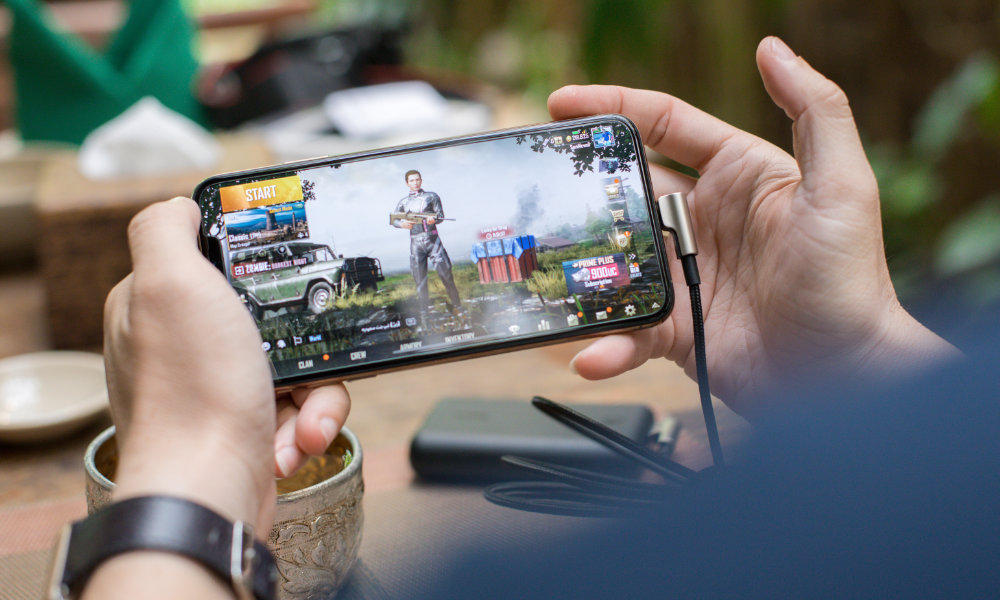Why You Can’t Get Most Gaming Services on Your iPhone
 Credit: Screen Post
Credit: Screen Post
Toggle Dark Mode
There’s been a new surge of subscription gaming services over the past couple of years, but if you’re wondering why Apple’s iPhones and iPads seem to be perpetually left out, it turns out that the place to look is unsurprisingly Apple itself and its typically restrictive App Store policies.
The key problem, as Bloomberg points out, is that almost all of these online gaming services rely on streaming to get their games onto users’ devices, rather than direct downloads, and this is something that has long been prohibited by Apple’s App Store Review Guidelines, along with several other restrictions involving an app from one developer including third-party games from other developers or even bundling several games together in a single app.
The relevant clause in Apple’s guidelines would appear to be section 3.1.2(a):
“You may offer a single subscription that is shared across your own apps and services, but these subscriptions may not extend to third-party apps or services. Games offered in a game subscription must be owned or exclusively licensed by the developer (e.g. not part of a game publishing platform). Each game must be downloaded directly from the App Store, must be designed to avoid duplicate payment by a subscriber, and should not disadvantage non-subscriber customers.”
This allows developers to share a single subscription across all of their own apps, but doesn’t allow apps from several developers to be bundled together in a single subscription, even if those apps are available as individual downloads from the App Store.
Of course, Apple itself doesn’t run afoul of these policies in its Apple Arcade service, since the games themselves are delivered from the App Store as individual packages, they are fully downloaded to users’ devices, rather than being streamed from the cloud, and they are all “owned or exclusively licensed by the developer” — the developer in this case being Apple.
In fact, at this point the App Store isn’t even setup to allow other developers to take advantage of the same capabilities that Apple can enjoy. Apple Arcade is built into the App Store as a special section, with a special subscription model that allows individual apps to be downloaded for free. On the other hand, if a third-party developer wanted to follow the same model, they’d be stuck taking a much more convoluted approach that would likely have to combine free apps with some kind of in-app authorization system.
Tough Rules to Play By
As Bloomberg notes, there is one gaming subscription service that has managed to find its way onto the App Store, but it’s had to jump through some pretty serious hoops to play by Apple’s rules.
The amount of effort we put into making sure the app played by Apple’s rules was no joke, it was a huge undertaking.
Eli Hodapp, Head of Business Development, GameClub
After 127 rejections by Apple, during which is had to tweak the rules each time, the GameClub app and service got approved, but did so by licensing “several old-school games” and releasing them on the App Store under its own developer account. This allows it to sell a single $4.99 in-app subscription that can be used to unlock all of the apps, since they’re all controlled by the same developer.
Meanwhile, Microsoft released a beta version of Project xCloud last month as a free preview, which the company is expected to launch under its Game Pass brand later this year. However, as the service stands right now, Project xCloud on iOS is extremely limited compared to what it offers on other platforms. While Microsoft offers 90 games on Android, for instance, only one, Halo: The Master Chief Collection, is available on iOS right now, most likely because Apple’s policies prevent even Microsoft from offering games from other publishers; Halo is one of the few first-party games available on xCloud.
However, Microsoft is also likely pushing up against the App Store rule that says that “each game must be downloaded directly from the App Store.” Apple has long prevented bundled “apps-within-an-app” designs, since it wants each app to have its own App Store page and ranking, but it’s also concerned about games being able to bypass the App Store review process. While catalogue apps are fine for things like magazines, newspapers, videos, and books, none of these involve actual code that’s run on the device, and therefore don’t require the same level of scrutiny.
Stifling Competition?
The problem, of course, is that this is likely another area in which Apple may face even more antitrust allegations. With over a billion iPhone and iPad users, Apple is effectively cutting of its rivals from a huge customer base, and while it argues that these policies apply equally to everybody, and that Apple itself has to play by the same rules, it’s clear based on how Apple Arcade has been developed that it has given itself a slight edge.
More than half of the $62 billion spent on smartphone gaming last year happened on Apple products.
As Bloomberg notes, the iOS App Store accounted for 65% of app spending globally last year, which gives Apple a great deal of power to “make or break mobile gaming businesses.”
Meanwhile, as faster wireless networks become the norm, Google, Microsoft, and Nvidia have continued to push for cloud-based gaming services due to their ability to run on a wider variety of platforms, especially lower-end devices that might not otherwise have the CPU power to drive high-performance games.
Whether this could actually become an antitrust issue is a bit more complicated, since these particular policies have been in place since the early days of the App Store — long before streaming gaming services were even a thing. Of course, this also means that it’s probably time Apple took another long hard look at these policies to decide if they should still apply in today’s gaming marketplace.






